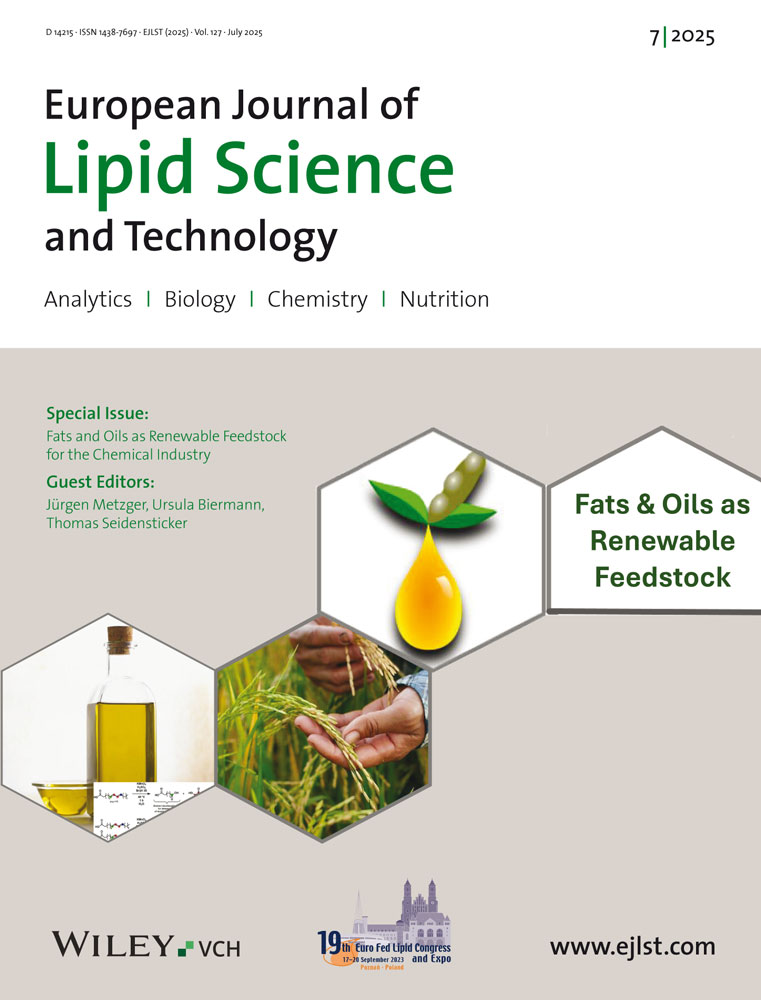Effect of Treatment Voltage and Duration of Cold Plasma on the Oxidation Stability of Herring Oil and the Use of Vitamin E as Antioxidant
Funding: This work was supported by National Natural Science Foundation of China (No. 3207161197), General Projects of Key Industrial Chains in Shaanxi Province (2021NY-166, 2022ZDLNY04-02, 2023-ZDLNY-41), and Shaanxi Provincial Innovation Capacity Support Project (2022KJXX-79), and Processing and Demonstration Project of Weinan Special Agricultural Products (2022GD–TSLD–58-3,4).
ABSTRACT
Effects of cold plasma (CP) treatment voltage and duration on the oxidation properties of fish oil were investigated, and the protective role vitamin E (VE) in this process was evaluated. The results indicated that as the voltage and treatment duration of CP increased, the unsaturated fatty acids, particularly polyunsaturated fatty acids, in fish oil were degraded, leading to increased peroxide value, acid value, p-anisidine value, and malondialdehyde level. However, fish oil supplemented with VE exhibited strong antioxidant protection, particularly under high voltage and extended treatment conditions. VE effectively scavenged reactive oxygen species and free radicals, thereby mitigating oxidative degradation of the oil. This study provides new insights into the application of CP technology in high-fat foods and demonstrates the potential of VE as a natural antioxidant for enhancing oil stability.
Practical Applications: Cold plasma, with its effective surface disinfection capabilities, has shown significant potential in improving food safety, particularly in the processing of meat products and fats. However, excessive use of cold plasma may disrupt unsaturated fatty acids in oils, leading to the formation of harmful oxidation by-products that can negatively affect the quality and nutritional value of the oil. The various oxidation indicators of fish oil, color, fatty acid composition, and thermal properties were selected in this study to analyze the mechanisms by which oxidation is induced in fish oil by cold plasma. Additionally, the antioxidant effect of vitamin E as an additive during the cold plasma treatment process was also investigated in the study. Looking ahead, the combination of cold plasma technology and antioxidants is expected to enhance the safety of fat-based foods, extend shelf life, and preserve nutritional content, providing the food industry with more efficient, safe, and sustainable processing methods.
Conflicts of Interest
The authors declare no conflicts of interest.
Open Research
Data Availability Statement
Data will be made available on request.




